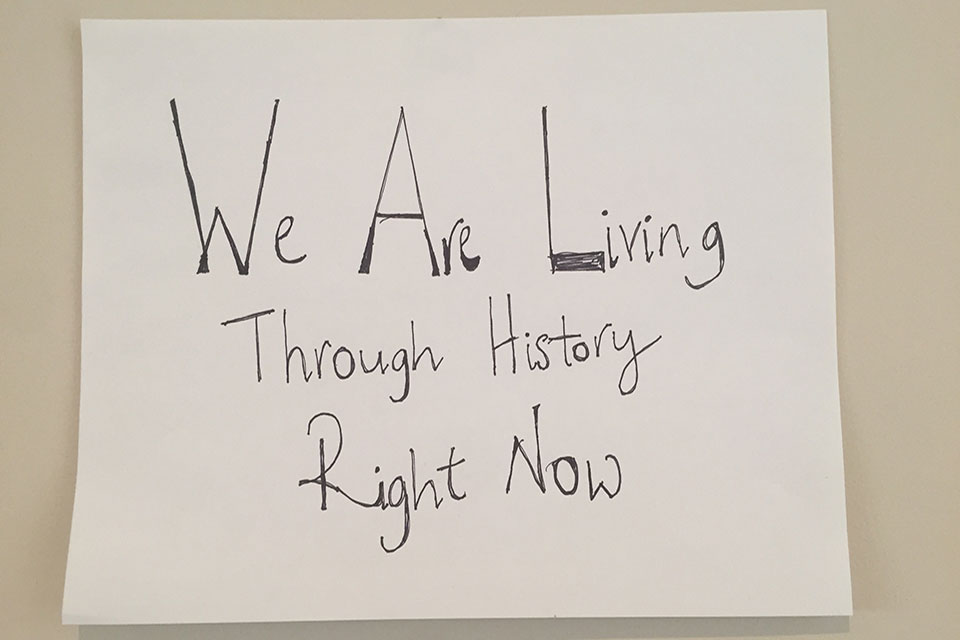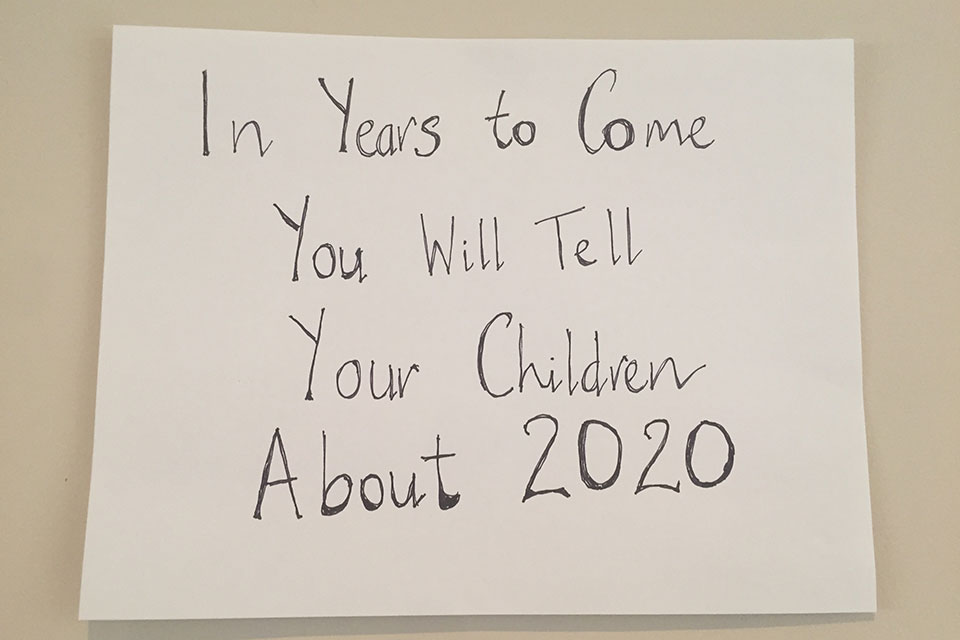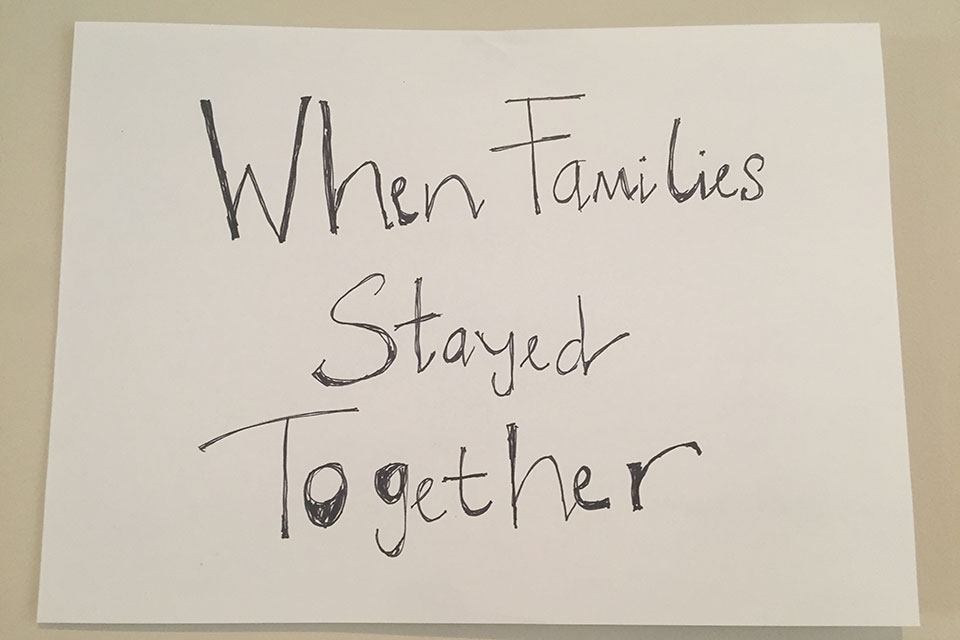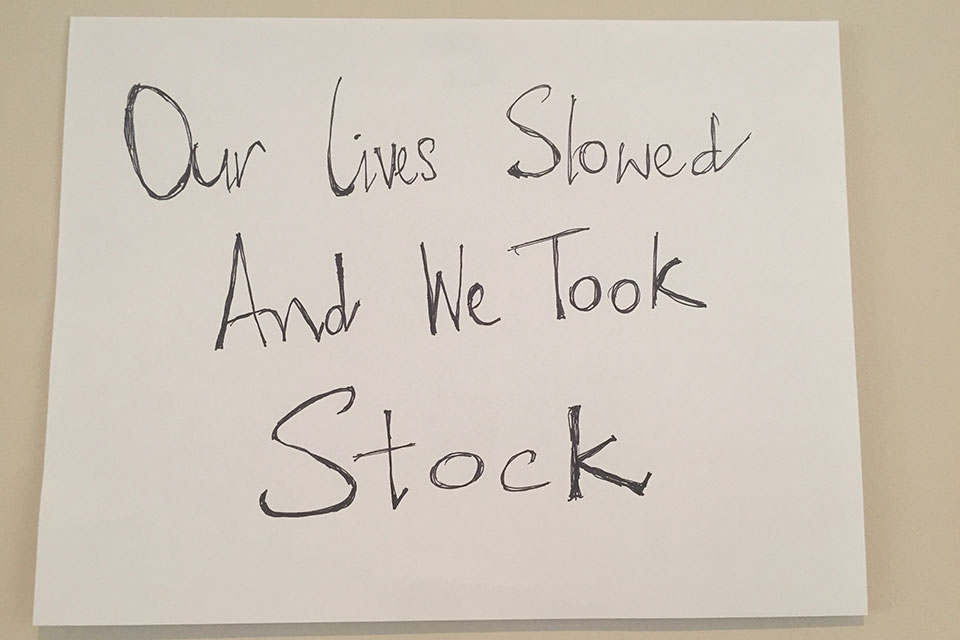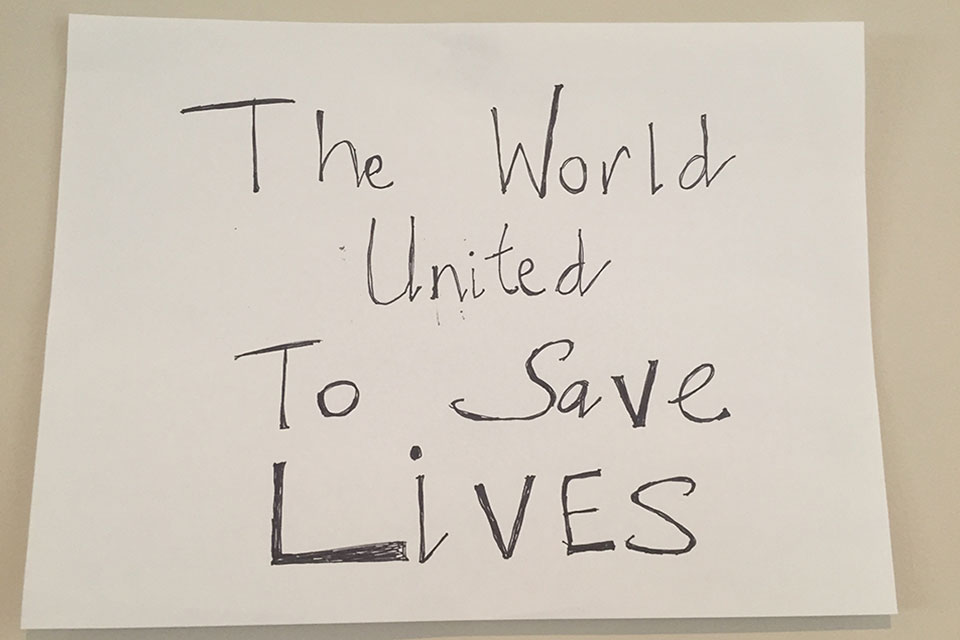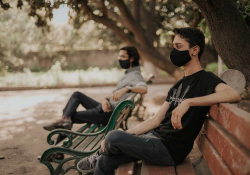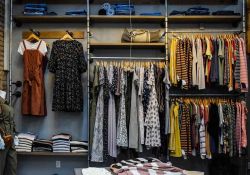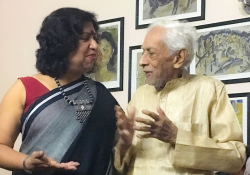Oh, the Places You’ll Not Go!
Writer Ethel Rohan documents the little victories that stand in place of the life events that should be happening out there as she and her family shelter in place in San Francisco.
My house is loud. It is day 15 of San Francisco’s Covid-19 shelter-in-place order. In the family room, my husband is recording a video skit to share with his golf buddies, a mock tutorial on putting. He emits a swear word when the golf ball doesn’t go into the cutout hole in the swatch of green felt on the hardwood floor.
“Scene one, take nine,” he sigh-says to no one and makes a sound with his hands that’s less like a movie clapboard and more like a slap. He’s a contractor and avid golfer, and the mandate has forced him out of work and off the course. He is, by his own admission, going out of his mind. “I wasn’t made to stay put.”
In the living room, our almost twenty-one-year-old daughter, a musical theater junior at Syracuse University, rehearses for the umpteenth time Christina Perri’s “Jar of Hearts.” Her normally velvet voice is jagged, and not in a good way. She makes disgusted noises, almost like she’s gagging. She starts the song again, and again, every time colliding with the chorus.
She slams the piano’s keyboard. I startle, and think of teeth, of rib bones. How they break. I’m a fiction writer. I have PTSD. That’s how my mind works. My daughter starts the song again. Before college, her singing was a constant in our house. When she left for SU, I missed her singing like it was a death. Now, I would like her to be quiet. Please.
In her bedroom, my seventeen-year-old is on a Zoom chat with fellow high school seniors. The Class of Pandemic, with beginnings marred by 9/11. They discuss canceled prom and graduation ceremonies and agonize over making their college decisions. They sound like squawking contestants on a game show where the most vocal, animated player wins.
A husky voice says, “I’m thinking of taking a gap year. I mean, they’re saying our first semester could be online.” The group’s response is so charged it’s impossible to pick the game show’s winner.
“I want to be there already,” my daughter chirps. Her top choice is Tufts University. Mine is NYU. I’m told I don’t get a say. Her cheapest choice will get the last word. We didn’t receive the financial aid we’d hoped for and can’t afford either Tufts or NYU. Especially now, the virus having stalled our income and ushering in a massive recession. I tug on my headphones. The house remains noisy. From my desk drawer, I sneak the bottle of cannabis-infused tincture and drop the anxiety relief under my tongue.
The bleat of a ringer cuts the air. Once my mouse clicks on the red phone icon on my laptop, I will connect with my girlfriends—gathered for tea and a chat at high noon. I have showered and washed my hair for the occasion, brushed my teeth, tweezed my eyebrows, waxed my upper lip, and moisturized all over. The effort feels monumental after weeks of isolation, overeating, overdrinking, insomnia, and little exercise. Yet the return to self-care feels good. “Present” is in presentable. The prospect of holding a conversation with friends, of making out that I’m managing, remains daunting.
The return to self-care feels good. “Present” is in presentable.
I take the call. My face in the screen is older, puffier, haggard. At first I feel frozen, mute, but as the collective conversation and mood heightens, I thaw and join in. The call lasts one hour and forty-five minutes. Despite the gravity of our times—the threatened livelihoods, the mounting Covid-19 cases and deaths, the devastated mourners—we and all those we know and love are healthy and safe and coping. We are privileged, and grateful. I finish the video call feeling so much better than when I started. An introvert, and often overwhelmed socially, I never before fully appreciated how much I need conversation, laughter, kinship.
By day 20 of The Lockdown, I have prepared almost the same number of family meals. In the Before, we dined out, ordered in, and made do several times a week. In the During, I have reclaimed my time and love for cooking and upped my ability to deliver a feast of delicious.
On our best nights in the time of coronavirus, dinner is preceded by bird-watching on our deck (hummingbirds!) and is followed by board games. The resurrection of this almost-forgotten family routine only happens when the conversation during dinner doesn’t devolve into arguments over chores, screen time, not listening, not caring, not remembering—the latter three are purportedly crimes of the father and the mother. Our worst arguments are over the mess our daughters leave in their wake, like robbers have ransacked the rooms and full-on overturned their bedrooms.
Our favorite board game is Scrabble. I win most often. The opposite is true of our younger daughter. I challenged my husband when he placed “butyl” and it cost me the game. Another night, our roles reversed when my tiles spelled “zin.” Our oldest claimed a win with “qi.” Her sibling has triumphed with “qualms.” We are competitive, engaged, present. We get loud, the good kind. We laugh.
Our favorite board game is Scrabble. . . . We are competitive, engaged, present. We get loud, the good kind. We laugh.
Day 23 is our oldest daughter’s twenty-first birthday. Once again the red phone on my laptop rings. This time the call is for the entire family, from my twin sisters in Ireland. They’re phoning to wish our oldest daughter happy birthday and to share a video they recorded. The video’s opening footage recalls my favorite scene from the British film Love Actually, where the unrequited lover appears at his beloved’s front door and plays a song, flips those handwritten signs baring his heart. My sisters’ sharpied signs speak of Love, Connection, Appreciation, Creativity, Health, Opportunity, and Hope in the time of the novel coronavirus. Screen after screen of old photos of our family, our oldest daughter, beaming.
Later, we lure our freshly minted adult onto the narrow balcony at the front of our house. She protests, confused, suspicious. In our ten years in our home, we have never spent time on our largely ornamental balcony. We look onto the empty street, several of our neighbors’ windows decorated with uplifting pandemic-inspired paper artwork, and the sun shining on the other no-doubt occupied homes on the hill. The champagne fizz needles my face. The birthday girl recoils from the cobwebs on the metal railings. She turns back for the French door and the living room. Her dad and I pretend we want to make a speech in her honor in the evening’s golden air.
Just as she says, “No, thanks,” a red car appears on the street, the first in a convoy of friends participating in a surprise happy birthday drive-by. Irish immigrants, we have no family in America. The parade of cars beep, long and loud. Loved ones lean through open windows and spring from gaping sunroofs with festive signs, grinning, laughing, shouting. Our neighbors appear in their doorways and wave and cheer. The cars pause on the road and all together we sing “Happy Birthday.” Our daughter is stunned. Lit up.
We return inside for dinner. A table for four. Again. The twenty-one-year-old requested her favorite meal.
teaser
massage olive oil and raw kale (to throbbing music)
add sliced pear, diced pecans, and blue cheese (or feta for the fainthearted)
main act
salt, pepper, and lemon salmon fillets (to love songs) 25mins/350
boil, salt, butter, and mash potatoes (plus chives for the fancy) 25mins/high
sauté asparagus in salt, pepper, and olive oil 5mins/med-high
church
chocolate (any way. any how.)
We eat and drink, fast, greedy. We say how delightful the video from my sisters is. How fantastic the parade was. How delicious the meal. How moist the raspberry-chocolate birthday cake, sugar-fired. How amazing our friends. The entire day, we agree, just wonderful.
Our youngest speaks up. “If it’s still like this, I want a birthday parade, too.”
My husband and I glance at each other, sad-smiling. She will turn eighteen on May 22. The thought rings in my head. It will still be like this on that day, and beyond. We will remain separated from much of the world, except through the phone, video, and the rare six feet of separation behind facemasks. We will give our second daughter her happy birthday drive-by. We will make that entire day, and all that we can during this extraordinary time, its best. We have the recipe, the helpers, the stubborn love.
San Francisco
